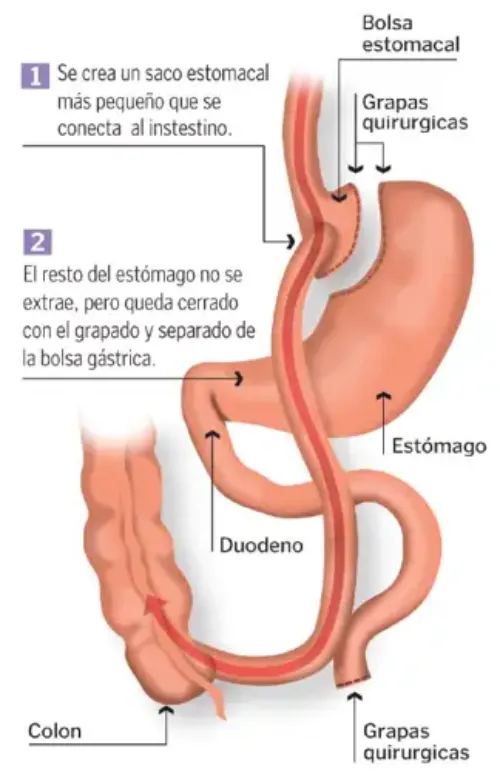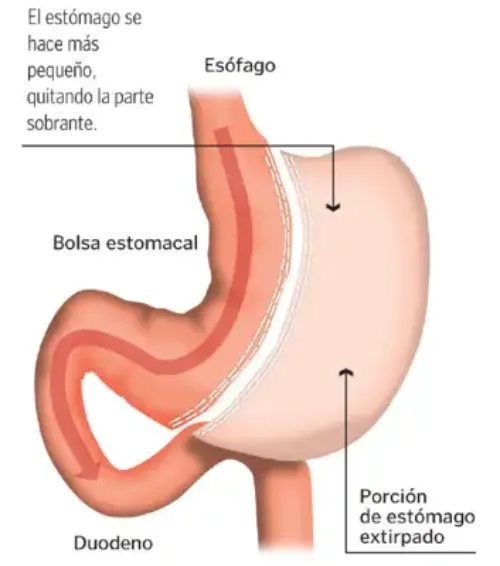Metabolic surgery
"Metabolic surgery has been shown to be beneficial not only for the control of diabetes, but also for the resolution of associated diseases".
DR. VÍCTOR VALENTÍ CODIRECTOR. AREA OF OBESITY

What is diabetes surgery?
Metabolic surgery or diabetes surgery solves up to 80% of cases of type 2 diabetes mellitus.
This high percentage of success does not mean that all patients with diabetes should have surgery, although those people who, for some reason, cannot carry out their medical treatment correctly or those who are difficult to control, who associate other metabolic problems in spite of following the correct measures, are candidates, at least, for a study to evaluate their suitability for this type of intervention.
If, in addition, the patient who is a candidate for metabolic surgery presents other alterations such as cholesterol, triglycerides or blood pressure values, these will be significantly improved with the surgery. In most cases, the patient may not even need to take medication for these diseases.

Why at the Clinica Universidad de Navarra?
We are an International Center of Excellence in Obesity Surgery, accredited by the International Federation for Bariatric Surgery (IFSO)
Excellence
More than 15 years of experience in the treatment of diabetes surgery
Specialists
Trained at international reference centers in these techniques in the USA and the UK
Speed
In 48 hours our specialists will evaluate your case and propose the best treatment
When is metabolic surgery indicated?
This surgery is indicated for those patients with type 2 diabetes mellitus, who despite medical treatment do not achieve adequate control of the disease.
If, in addition, the patient who is a candidate for metabolic surgery presents other alterations such as cholesterol values, triglycerides or high blood pressure, these will be notably improved with the surgery.
Most frequent indications of this treatment:
Do you have any of these diseases?
Metabolic surgery may be indicated
How is metabolic surgery performed?
Tipos de técnicas quirúrgicas para la diabetes
There are several surgical techniques that can be performed today, depending on the characteristics of the patient.
Metabolic or diabetes surgery is performed with the same surgical techniques that are practiced for the surgical treatment of obesity.
This type of surgery is usually performed, and with a very low complication rate in our center.
Patients are evaluated by specialists in the Obesity Area and will request the tests and reports from the other specialists.
- Consultation with the specialist in General Surgery and Endocrinology
- Bod-Pod body composition study.
- Consultation with the nutritionist.
- Viscan.
- Abdominal ultrasound scan.
- Blood and urine analysis, E.C.G. and thorax x-ray.
In addition, if the specialist considers it appropriate, he will indicate other complementary tests to be carried out.
Bypass gástrico laparoscópico
By means of this technique the stomach is sectioned to make it smaller and the intestine is sutured. In this way, the amount of food ingested is less and its absorption is limited to the desired stretch of intestine.
The patients present early sacity and less attraction to food.
This surgery is recommended for patients with BMI over 40, or 35 with other associated interventions.
After the intervention, the average weight loss is usually around 30% of the total weight and 70% of the excess weight.

Gastrectomía tubular laparoscópica
By means of this intervention, the stomach is seized with mechanical staplers until it adopts a long and narrow tubular shape, extracting the rest of the stomach from the organism. In this way, the path followed by the food is the same as before the surgery.
This operation is indicated in those patients in whom the risks of a long operation are very high, in those in whom the BMI is very high or in those in whom it is not desired to associate a lower absorption of the food with the restriction.

Preparativos previos a la intervención
Before the intervention it is convenient to follow the recommendations that your team of professionals will provide you with in order to achieve greater success in the surgery and a better recovery.
- Personalized diet plan by our nutritionists to achieve a reduction in the size of the liver and visceral fat.
- Exercise program adapted to each patient to improve cardiovascular capacity and reduce the risk of complications after surgery.
- If you are a smoker, you must stop smoking.
- Other care about medication, infection prevention, etc.
Recuperación tras la cirugía metabólica
This type of surgery is usually performed with a very low complication rate.
The interventions are performed through small incisions in the abdomen, minimizing scars and facilitating the recovery of the patient.
Generally, after 24-48 hours in which an adequate oral tolerance has been achieved and the patient is in good general condition, the patient can go home to continue his full recovery.
Where do we do it?
IN NAVARRA AND MADRID
The Obesity Area
of the Clínica Universidad de Navarra
Our Obesity Area is formed by a team of professionals from different specialties. In less than 48 hours we perform the complete evaluation of a patient by all specialists according to our obesity protocol.
The Clinic is a center of excellence accredited in the treatment and surgery of obesity by the European Society for the Study of Obesity and by the International Federation for Bariatric Surgery.
What diseases do we treat?
- Metabolic syndrome
- Overweight
- Obesity
- Morbidly obese
- Childhood obesity
What treatments do we perform?
- Medical plan and personalized nutritional follow-up
- Intragastric balloon
- Bariatric surgery
- Endoscopic techniques
- Metabolic surgery
- Revision surgery

Why at the Clinica?
- More than 20 years of experience in the treatment of obesity surgery.
- Trained in these techniques in international reference centers in the USA and Europe.
- In 48 hours our specialists will evaluate your case and propose the best treatment.



















